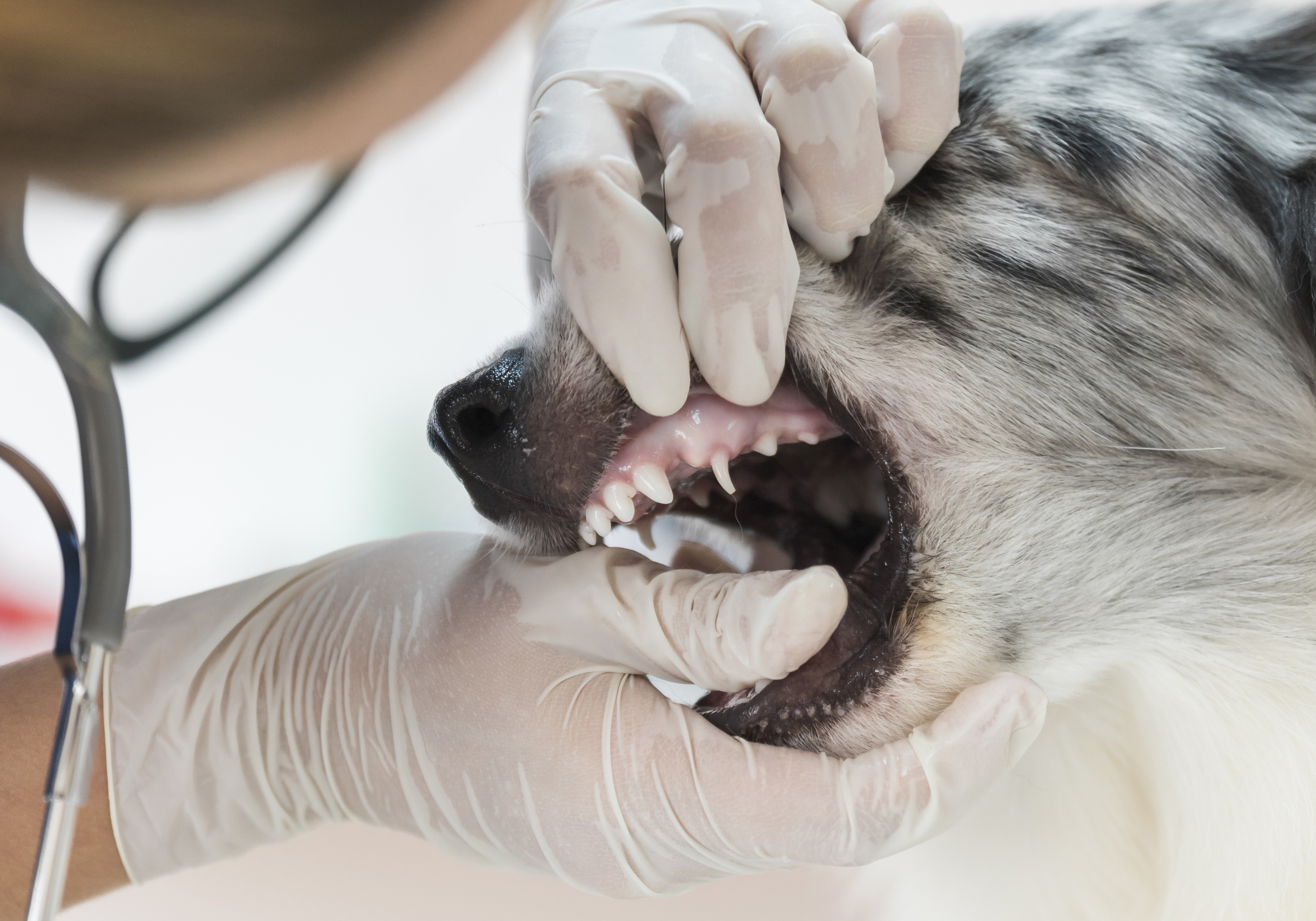In our fast-paced, ever-evolving world, the quest for solace and tranquility has become paramount. Amidst the chaos, an unexpected ally emerges – our beloved pets. These furry (or feathered, or scaled) companions possess an innate ability to soothe our souls and alleviate the burdens of stress and anxiety.
From the unconditional love they offer to the gentle nudges that beckon us to embrace the present moment, pets have proven themselves invaluable in fostering emotional well-being. This comprehensive article delves into the myriad ways in which our animal friends contribute to stress reduction and anxiety relief, unveiling the profound psychological benefits of pet ownership and providing insights into leveraging their calming presence.
Table of Contents
The Undeniable Bond: Understanding the Human-Animal Connection
The relationship between humans and animals transcends mere companionship; it is a profound emotional connection that has withstood the test of time. Throughout history, our ancestors have relied on animals for sustenance, protection, and companionship, forging an unbreakable bond that has evolved into a mutually beneficial partnership.
In today’s world, where mental health challenges are increasingly prevalent, this bond takes on a new significance, as pets offer a sanctuary of solace and a reprieve from the relentless demands of modern living.
The Evolutionary Roots of Attachment
Researchers have long explored the evolutionary roots of our attachment to animals, seeking to understand the intricate mechanisms that underlie this powerful bond.
One theory suggests that our affinity for animals stems from our innate need for social connections and the fulfillment of our nurturing instincts. Pets, with their endearing behaviors and unwavering loyalty, tap into these primal desires, providing us with a sense of purpose and belonging.
Pets as Emotional Anchors
Beyond the evolutionary underpinnings, pets serve as emotional anchors, grounding us in the present moment and offering a respite from the incessant worries that often plague our minds.
Their presence alone can elicit a sense of calm, reminding us to embrace the simple joys of life and to appreciate the beauty in the mundane. This ability to anchor us in the here and now is a potent antidote to the stress and anxiety that often stem from ruminating over the past or fretting about the future.
The Physiological Impact: Decoding the Impact of Pets on Stress Reduction and Anxiety Relief
While the emotional benefits of pet ownership are well-documented, the physiological impact of interacting with animals is equally profound.
Numerous studies have shed light on the intricate mechanisms through which our furry friends can alleviate the physical manifestations of stress and anxiety, offering a holistic approach to emotional well-being.
Lowering Blood Pressure and Heart Rate
One of the most notable physiological effects of pet ownership is its ability to lower blood pressure and heart rate. The simple act of petting an animal can trigger the release of oxytocin, a hormone associated with feelings of trust, bonding, and relaxation.
This, in turn, can lead to a reduction in cortisol levels, the hormone responsible for regulating stress responses in the body.
Enhancing Cardiovascular Health
Beyond the immediate benefits of reduced blood pressure and heart rate, pet ownership has been linked to improved cardiovascular health. Studies have shown that individuals who own pets are less likely to develop heart disease and have a higher survival rate following a heart attack or stroke.
This remarkable finding underscores the profound impact that the companionship of animals can have on our overall well-being.
Boosting Immune Function
Interacting with pets has also been shown to bolster our immune system, potentially reducing the risk of various illnesses and infections.
The release of oxytocin and the subsequent reduction in cortisol levels can help to modulate the body’s inflammatory responses, leading to improved immune function and a decreased susceptibility to stress-related illnesses.
The Mental Health Landscape: Exploring the Role of Pets in Anxiety and Depression
While the physical benefits of pet ownership are undeniable, the impact of these furry companions on our mental health is equally compelling.
Numerous studies have explored the potential of pets to alleviate the symptoms of anxiety and depression, offering a unique and accessible form of support for those struggling with these challenges.
Pets as Anxiety Buffers
For individuals grappling with anxiety disorders, the presence of a pet can serve as a powerful buffer against the debilitating effects of these conditions.
The unconditional love and companionship offered by animals can provide a sense of security and comfort, helping to mitigate the feelings of fear and apprehension that often accompany anxiety.
Combating Loneliness and Social Isolation
One of the most significant contributors to mental health issues is loneliness and social isolation. Pets, however, can serve as a bridge to social connections, facilitating interactions with others and fostering a sense of belonging.
Whether it’s striking up a conversation with a fellow dog owner at the park or joining a pet-related community, the presence of an animal can open doors to new relationships and support networks.
Enhancing Self-Esteem and Emotional Regulation
For those struggling with low self-esteem or difficulties in emotional regulation, pets can offer a unique form of support. The non-judgmental nature of animals and their ability to provide unconditional love can help to bolster self-confidence and foster a sense of acceptance.
Additionally, the routine care and attention required by pets can instill a sense of responsibility and structure, which can be particularly beneficial for individuals seeking to develop healthier coping mechanisms.
The Therapeutic Embrace: Pet-Assisted Therapy and Its Applications
While the benefits of pet ownership are well-documented, the field of pet-assisted therapy has emerged as a powerful tool in the realm of mental health treatment.
This innovative approach leverages the unique bond between humans and animals to facilitate healing, growth, and emotional well-being in a variety of settings.
Hospitals and Healthcare Facilities
In hospitals and healthcare facilities, the presence of therapy animals has been shown to alleviate stress and anxiety among patients, visitors, and even staff members.
These gentle creatures offer a welcome distraction from the often-sterile and clinical environment, providing comfort and companionship during challenging times.
Assisted Living and Nursing Homes
For residents of assisted living and nursing home facilities, the introduction of therapy animals can be a game-changer. These furry friends can help to combat feelings of loneliness and isolation, while also providing opportunities for socialization and engagement.
The simple act of petting or interacting with an animal can trigger a sense of joy and purpose, contributing to an overall improvement in emotional well-being.
Schools and Educational Settings
In educational settings, pet-assisted therapy has proven to be a valuable tool in supporting students with various learning challenges and emotional needs.
For children on the autism spectrum or those with attention deficit disorders, the presence of a therapy animal can help to foster focus, reduce anxiety, and promote social interaction.
Fostering Mindfulness: Pets as Guides to Living in the Present
In our constantly connected and fast-paced world, the practice of mindfulness has emerged as a powerful antidote to the stress and anxiety that often accompany modern living.
Interestingly, our beloved pets can serve as natural guides to embracing the present moment, offering valuable lessons in mindful living that can profoundly impact our emotional well-being.
The Art of Being Present
Pets, by their very nature, embody the essence of living in the present moment. They do not dwell on the past or worry about the future; instead, they fully immerse themselves in the here and now, savoring each moment as it unfolds.
By observing their behaviors and interactions, we can learn to let go of the constant mental chatter and fully embrace the present, cultivating a sense of calm and contentment.
Mindful Companionship
Beyond serving as role models for mindful living, pets can actively facilitate our journey towards mindfulness. The act of caring for an animal necessitates our full attention and presence, as we attend to their needs, engage in playtime, or simply bask in their companionship.
This mindful interaction can help to ground us in the present moment, providing a respite from the constant barrage of thoughts and worries that often consume our minds.
The Calming Rituals: Incorporating Pets into Stress-Reduction Techniques
While the mere presence of pets can offer a sense of calm and serenity, intentionally incorporating them into stress-reduction techniques can amplify their benefits and provide a holistic approach to emotional well-being.
From mindfulness practices to physical exercise, our furry friends can be invaluable allies in our quest for tranquility.
Mindful Meditation with Pets
Combining the practice of mindfulness meditation with the presence of a pet can create a powerful synergy, enhancing the experience and deepening our connection with the present moment.
The gentle rhythms of a pet’s breathing or the soothing sound of their purrs can serve as anchors, helping to quiet the mind and cultivate a state of relaxation.
Pet-Assisted Yoga and Exercise
For those seeking a more active approach to stress reduction, pet-assisted yoga and exercise routines can offer a unique and engaging experience.
Incorporating our furry companions into these practices not only adds an element of fun and playfulness but also encourages us to stay present and focused, as we navigate the challenges of balancing our own movements with those of our animal friends.
Outdoor Adventures with Pets
Spending time in nature has long been recognized as a powerful stress-relieving activity, and when combined with the companionship of a pet, the benefits can be amplified.
Whether it’s a leisurely stroll through a local park or an invigorating hike in the great outdoors, the presence of our animal companions can enhance our connection with the natural world, promoting a sense of calm and rejuvenation.
The Emotional Support System: Pets as Companions in Challenging Times
While the role of pets in promoting emotional well-being is undeniable, their presence becomes even more invaluable during times of adversity and personal challenges.
Whether we are navigating the complexities of a mental health condition, coping with grief, or facing significant life transitions, our animal companions can offer a unique form of emotional support.
Pets and Mental Health Conditions
For individuals living with mental health conditions such as anxiety, depression, or post-traumatic stress disorder (PTSD), the companionship of a pet can be a lifeline.
These furry friends can provide a sense of comfort and unconditional love, helping to alleviate symptoms and foster a more positive outlook on life.
Coping with Grief and Loss
The loss of a loved one can be a profoundly difficult and emotionally taxing experience. In such times, the presence of a pet can offer solace and companionship, helping to fill the void left by the absence of a cherished human connection.
Their unwavering loyalty and affection can provide a sense of comfort and stability, aiding in the healing process.
Navigating Life Transitions
Major life transitions, such as moving to a new city, starting a new job, or experiencing a significant change in personal circumstances, can be incredibly stressful and anxiety-inducing.
During these periods of upheaval, pets can serve as a constant source of familiarity and comfort, providing a sense of stability and continuity that can help mitigate the emotional turmoil associated with such changes.
The Intergenerational Bond: Pets and Their Impact Across the Lifespan
The benefits of pet ownership and the calming presence of animals are not limited to any particular age group or life stage.
From the youngest members of our society to our elder generations, the bond between humans and animals has the power to enrich lives and promote emotional well-being at every turn.
Pets and Child Development
For children, the presence of a pet can have a profound impact on their overall development. Beyond the obvious benefits of companionship and joy, interacting with animals can foster empathy, responsibility, and social skills.
Additionally, research has shown that children raised with pets are less likely to develop allergies and asthma, potentially due to the exposure to various microbes and allergens.
Pets and Aging: Combating Loneliness and Cognitive Decline
As we age, the risk of loneliness and cognitive decline can increase significantly. However, the companionship of a pet can serve as a powerful antidote to these challenges. For older adults, caring for an animal can provide a sense of purpose and routine, while also promoting physical activity and social engagement.
Moreover, the cognitive stimulation required to care for a pet can help to maintain mental sharpness and potentially delay the onset of age-related cognitive impairments.
The Inclusive Embrace: Exploring Alternative Forms of Pet Ownership
While the traditional concept of pet ownership often revolves around dogs, cats, and other domesticated animals, the benefits of animal companionship can extend far beyond these conventional boundaries.
From the tranquility of fish tanks to the unique bonds formed with exotic species, alternative forms of pet ownership offer a diverse range of opportunities for stress reduction and emotional support.
The Serenity of Aquariums and Fish Tanks
For those seeking a more subdued form of pet ownership, the installation of an aquarium or fish tank can provide a calming and soothing presence in any living space.
The gentle movements of the fish and the mesmerizing play of light on the water can induce a state of relaxation, offering a respite from the stresses of daily life.
Exotic Pets and the Allure of the Unconventional
While not suitable for everyone, the world of exotic pets can offer a unique and captivating experience for those seeking a more unconventional form of animal companionship.
From reptiles to small mammals, these creatures can challenge our perceptions and foster a deeper appreciation for the diversity of the natural world, potentially leading to a heightened sense of mindfulness and connection.
The Responsible Stewardship: Embracing the Commitment of Pet Ownership
While the benefits of pet ownership are undeniable, it is crucial to acknowledge the significant responsibility that comes with caring for an animal companion.
Responsible pet ownership requires a commitment to providing a safe, nurturing environment and meeting the physical, emotional, and behavioral needs of the animal.
The Financial and Time Commitments
Owning a pet is not a decision to be taken lightly, as it involves significant financial and time commitments. From food and veterinary care to grooming and exercise, the costs associated with pet ownership can be substantial.
Additionally, the time and effort required to properly care for an animal should not be underestimated, as neglecting these responsibilities can have detrimental effects on both the pet and the owner.
Ethical Considerations and Responsible Sourcing
Beyond the practical aspects of pet ownership, ethical considerations must also be taken into account. Responsible pet owners should prioritize sourcing animals from reputable breeders or shelters, avoiding the support of unethical practices such as puppy mills or illegal wildlife trade.
Furthermore, ensuring that the pet’s living conditions are humane and conducive to their well-being is a moral imperative.
Preparing for the Long-Term Commitment
It is important to recognize that pet ownership is a long-term commitment, often spanning the entirety of the animal’s lifespan.
Prospective pet owners should carefully consider their ability to provide consistent care and companionship for the duration of the pet’s life, as well as plan for contingencies such as relocations or changes in personal circumstances.
Embracing Alternatives: Options for Those Unable to Own Pets
While the benefits of pet ownership are undeniable, there may be circumstances or personal preferences that preclude individuals from committing to full-time pet ownership. However, this does not necessarily mean forgoing the joys and therapeutic benefits of animal companionship altogether.
A variety of alternative options exist, allowing individuals to experience the calming presence of animals while respecting their personal limitations or lifestyle choices.
Volunteering at Animal Shelters and Rescues
For those unable to commit to full-time pet ownership, volunteering at local animal shelters or rescues can provide a rewarding opportunity to interact with animals while contributing to a worthy cause.
These organizations often welcome volunteers to assist with tasks such as walking dogs, socializing with cats, or providing general care and support for the animals.
Pet-Sitting and Fostering Opportunities
Another alternative to traditional pet ownership is pet-sitting or fostering. Pet-sitting services offer the opportunity to care for animals on a temporary basis, providing companionship and relief for pet owners during their absence.
Similarly, fostering programs allow individuals to temporarily house and care for animals in need of permanent adoption, offering a valuable service while experiencing the joys of pet ownership on a short-term basis.
Animal-Assisted Therapy and Visitation Programs
For those seeking the therapeutic benefits of animal companionship, animal-assisted therapy and visitation programs can provide a structured and supervised environment for interacting with trained therapy animals.
These programs are often offered in healthcare facilities, schools, and community settings, allowing participants to experience the calming presence of animals while receiving guidance and support from trained professionals.
The Holistic Approach: Integrating Pets into a Comprehensive Wellness Plan
While the role of pets in reducing stress and anxiety is undeniable, it is important to recognize that they should be considered as part of a comprehensive wellness plan.
A holistic approach to emotional well-being often involves a combination of strategies, including professional support, lifestyle modifications, and self-care practices.
Seeking Professional Support
For individuals experiencing severe or persistent symptoms of stress, anxiety, or other mental health challenges, seeking professional support from qualified mental health practitioners is essential.
Therapists, counselors, and other healthcare professionals can provide evidence-based treatments and guidance, helping individuals develop effective coping strategies and address underlying mechanisms contributing to their distress.
Integrating pet ownership or animal-assisted interventions into a comprehensive treatment plan can enhance the therapeutic process and provide additional support.
Lifestyle Modifications and Self-Care Practices
In addition to professional support, adopting a holistic approach to well-being often involves making lifestyle modifications and incorporating self-care practices. Regular exercise, mindfulness practices, and healthy eating habits can play a crucial role in reducing stress and anxiety levels.
By incorporating the calming presence of pets into these self-care routines, individuals can amplify the benefits and cultivate a more balanced and fulfilling lifestyle.
Building a Support Network
Fostering a strong support network is another essential component of a comprehensive wellness plan. While pets can provide invaluable emotional support and companionship, it is equally important to nurture human connections and relationships.
Engaging in social activities, joining support groups, or participating in community events can help individuals build a sense of belonging and create a safety net during times of adversity.
The Evolving Landscape: Future Directions in Pet-Assisted Interventions
As our understanding of the therapeutic benefits of human-animal interactions continues to grow, the field of pet-assisted interventions is poised for further exploration and innovation.
Researchers, healthcare professionals, and animal welfare advocates are continuously seeking new ways to harness the power of the human-animal bond and integrate it into various domains of mental and physical health.
Expanding Applications in Healthcare Settings
While pet-assisted therapy has already made significant inroads in healthcare settings, such as hospitals, nursing homes, and rehabilitation facilities, there is potential for further expansion.
Exploring the use of animal-assisted interventions in areas like chronic pain management, addiction recovery, and trauma treatment could yield promising results and provide additional avenues for holistic healing.
Enhancing Accessibility and Inclusivity
As the demand for pet-assisted interventions grows, addressing issues of accessibility and inclusivity will become increasingly important.
Developing programs and initiatives that cater to diverse populations, including individuals with physical or cognitive disabilities, those from underserved communities, or those with cultural or religious considerations, can help ensure that the benefits of animal companionship are available to all.
Advancing Research and Evidence-Based Practices
While the existing body of research on the benefits of pet ownership and animal-assisted interventions is substantial, there is still much to be explored.
Continued investment in rigorous, evidence-based research can help refine best practices, identify specific therapeutic applications, and deepen our understanding of the physiological and psychological mechanisms underlying the human-animal bond.
Embracing the Calming Presence
In a world where stress and anxiety have become pervasive, the calming presence of our beloved pets offers a sanctuary of solace and a path towards emotional well-being.
From the unconditional love they provide to the physiological benefits they bestow, these furry (or feathered, or scaled) companions have proven themselves invaluable allies in our quest for tranquility.
Whether we are navigating the challenges of mental health conditions, coping with significant life transitions, or simply seeking respite from the demands of daily living, the bond we share with our animal friends has the power to soothe our souls and anchor us in the present moment.
By embracing the therapeutic potential of pet ownership and animal-assisted interventions, we can cultivate a more holistic approach to wellness, one that celebrates the profound connection between humans and the natural world.
As we continue to explore the intricate tapestry of human-animal interactions, new avenues for healing and growth will undoubtedly emerge.
It is our responsibility to approach this journey with compassion, responsibility, and a deep respect for the creatures that have so selflessly offered us their companionship and unwavering devotion.
In the end, the calming presence of pets serves as a gentle reminder to slow down, to appreciate the simple joys of life, and to embrace the present moment with open hearts and minds.
By allowing these remarkable beings into our lives, we open ourselves to a world of possibilities, where stress and anxiety fade into the background, and the path to emotional well-being is illuminated by the unconditional love and serenity that only our animal companions can provide.








